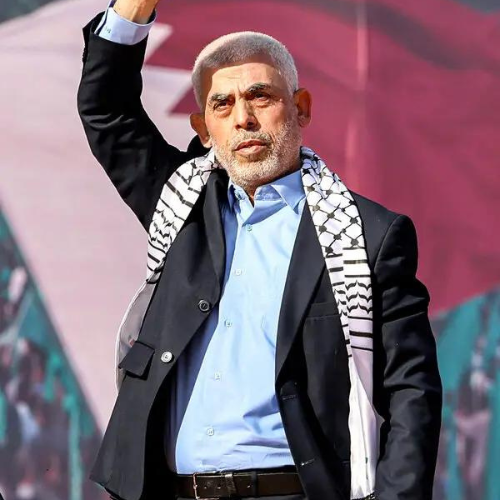In a major development in international legal actions, the United States Department of Justice has announced criminal charges against Yahya Sinwar, the chief of Hamas in Gaza. The charges, unveiled on Tuesday, relate to Sinwar’s alleged role in orchestrating the October 7 attack on Israel, a horrific event that resulted in the deaths of over 1,200 people, including more than 40 American citizens. This legal action marks a significant escalation in the global response to terrorism and highlights the ongoing complexities of the Israeli-Palestinian conflict.
Details of the Indictment Against Sinwar
The indictment names six defendants, with Yahya Sinwar prominently featured as a key figure. Sinwar, who is believed to be in hiding in Gaza, along with five other high-ranking Hamas members, is accused of orchestrating the attack that triggered a massive Israeli military response. This response has had devastating effects, exacerbating the humanitarian crisis in Gaza, where more than 40,800 Palestinians have been reported killed as a result of the ongoing conflict.
Attorney General Merrick Garland emphasized the severity of the charges against Sinwar. In the complaint, it was outlined that the defendants—armed with weapons, political support, and funding from the Government of Iran, as well as support from Hezbollah—were led in their efforts by Hamas to destroy the State of Israel and murder civilians in support of that aim. The indictment highlights the U.S. government’s determination to hold accountable those responsible for large-scale violence and terrorism.
Ismail Haniyeh Assassinated: Hamas Blames Israeli Strike for Leader’s Death in Tehran
The complaint also includes other high-ranking Hamas leaders, such as Khaled Meshaal, who leads Hamas’s diaspora office in Doha, and Ali Baraka, a senior Hamas official based in Lebanon. The deceased defendants named in the indictment include former Hamas leader Ismail Haniyeh, who was allegedly assassinated in July in Tehran; military wing chief Mohammed Deif, who Israel claims to have killed in a July airstrike; and Marwan Issa, a deputy military commander reportedly killed in a March strike.
Impact of the Charges on the Conflict
The October 7 attack, which is attributed to Yahya Sinwar and his associates, represents a significant escalation in the Israeli-Palestinian conflict. The attack’s brutality and the subsequent Israeli military operations have drawn widespread international condemnation and attention. The Israeli government’s response has included extensive military actions in Gaza, which have been heavily criticized for their humanitarian impact.
The charges against Sinwar come at a time of intense geopolitical tension. The support from Iran and Hezbollah for Hamas has introduced additional complexity to the conflict. U.S. officials allege that these external actors provided crucial support to Hamas, intensifying the violence. Iran has denied any direct involvement and has instead blamed Israel for the assassination of Haniyeh, reflecting the deep-seated animosities that define the broader Middle Eastern conflict.
Broader Implications and Global Reactions
The indictment of Yahya Sinwar and other Hamas leaders marks a pivotal moment in the international legal response to terrorism. By holding key figures like Sinwar accountable, the U.S. aims to weaken Hamas’s operational capabilities and send a strong message to other terrorist organizations about the consequences of targeting civilians and engaging in acts of terror.
The global community is closely observing how this legal action will affect the ongoing conflict and whether it will alter the broader dynamics in the region. The charges against Sinwar are likely to become a focal point in discussions about justice and accountability in the context of international terrorism. As the conflict continues to evolve, these charges highlight the complexities of addressing terrorism while navigating the intricate web of regional politics.
The U.S. charges against Yahya Sinwar and other Hamas leaders represent a critical development in the fight against terrorism. By addressing the roles of key individuals in the October 7 attack, the U.S. highlights its commitment to pursuing justice and holding perpetrators accountable. This action, while significant, is part of a broader and ongoing effort to address the challenges of international terrorism and the Israeli-Palestinian conflict.


